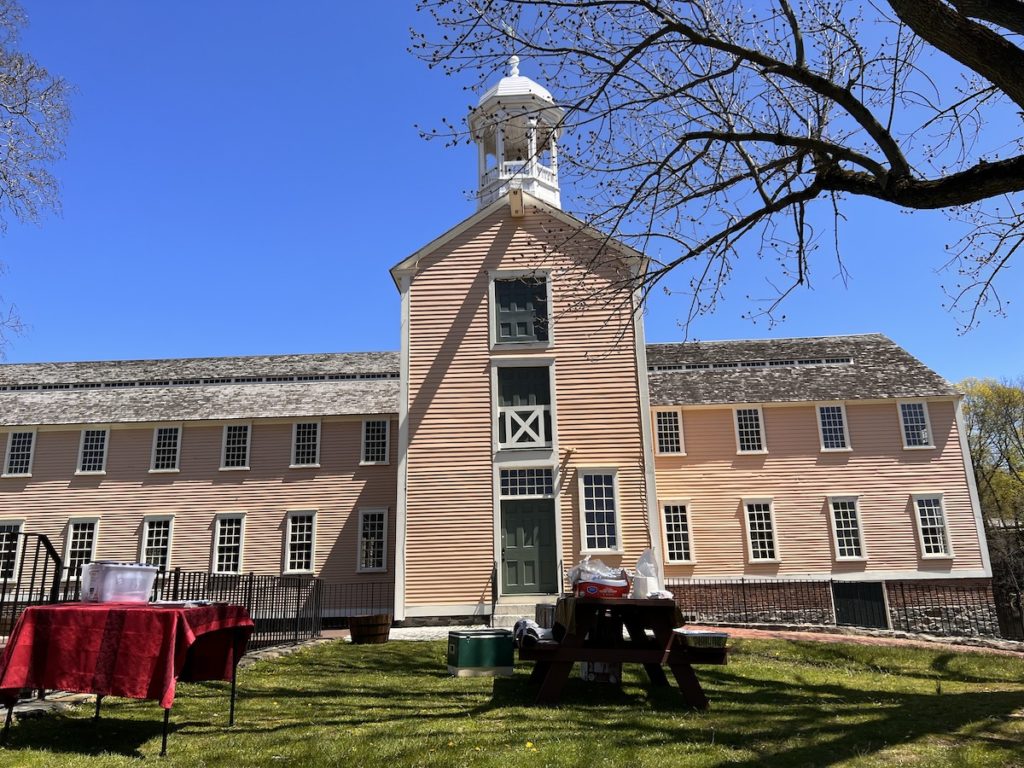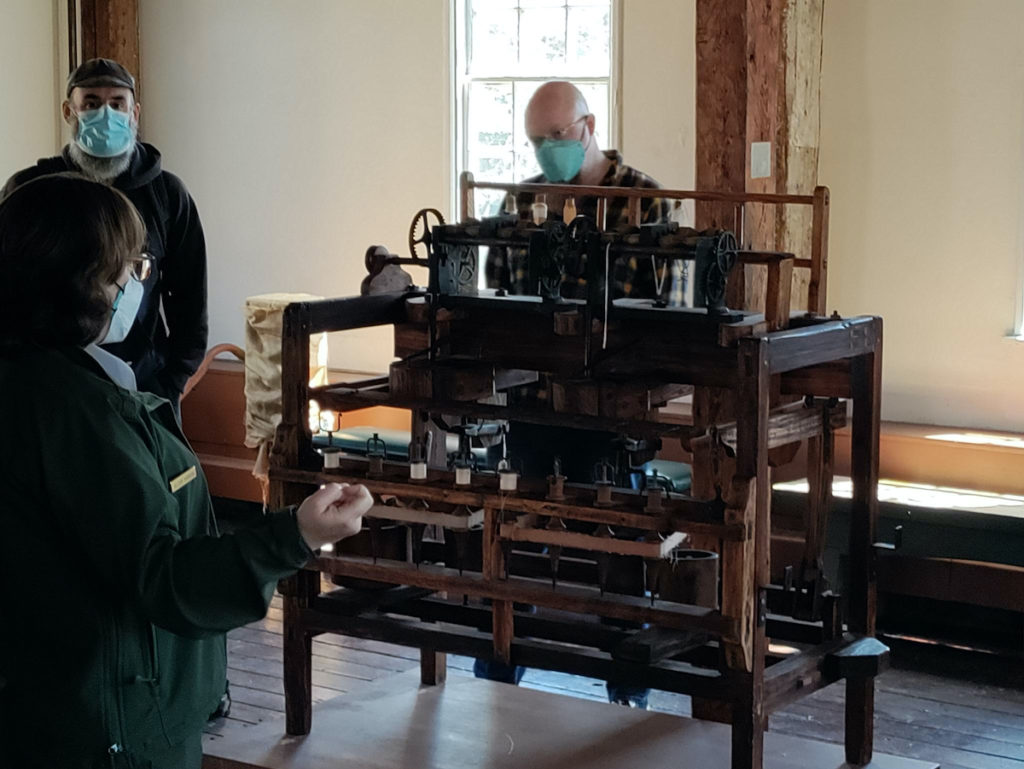Slater Mill in Pawtucket, Rhode Island, is the United States’ first textile mill and the site of the first industrial strike in U.S. history. In response to cut wages, the women textile workers of the mill marched out on strike in May 1824, and refused to return until wages were restored — and they won.

Members of the Party for Socialism and Liberation held a study at Slater Mill this week in honor of International Workers’ Day. About 20 people gathered on May Day to learn about the history of the first industrial production facility in the country, and the workers who struggled there.
Built in 1793, the mill used water-powered machinery to convert cotton into thread and yarn. The workers at these early mills were almost entirely women and children. Children as young as seven worked 12 hour days six days a week in air choked with cotton dust, surrounded by fire hazards and dangerous machinery.

A teacher in Pawtucket who attended the study said she had never heard of the first women-led strike at Slater Mill when she was in school, even though she grew up nearby. Another participant shared, “Production has gone up. We have technology which we never have seen before, AI and all that stuff, but still the wealth gap is increasing.”
“It was amazing to hear about the success of the strike at Slater Mill, and I loved how it gives a real example of solidarity between working people,” said Jordan, an organizer with the PSL. The women’s action inspired men in the town to strike a week later, and the women supported their struggle.

After the study, the National Parks Service gave a tour of the mill, which has been preserved as a museum. Inside, both originals and replicas of early machines from the early 19th century provide a window into the difficult, dangerous work faced by the first U.S. industrial workers.






